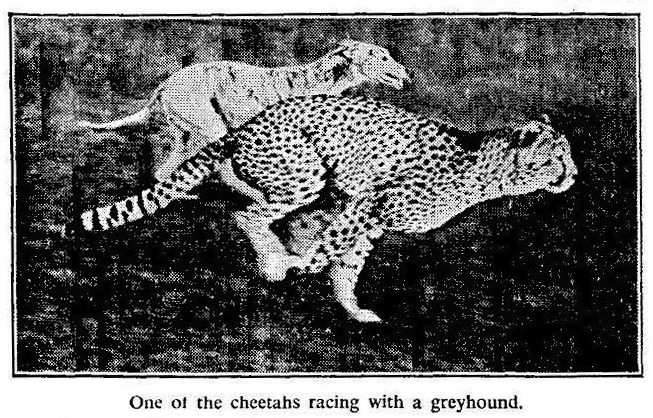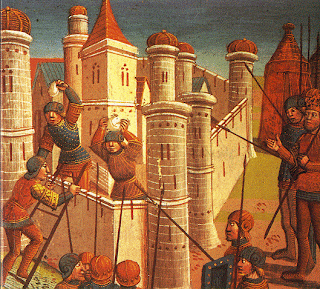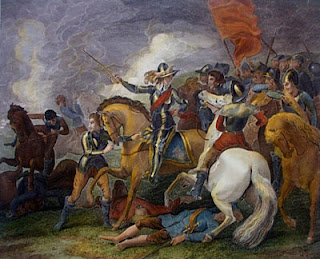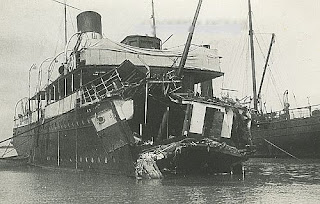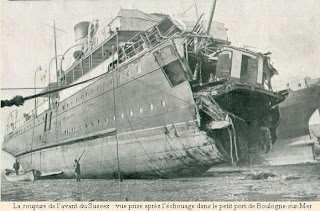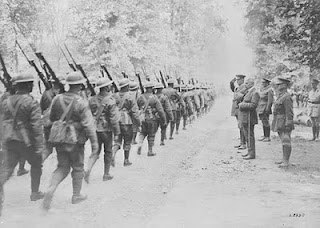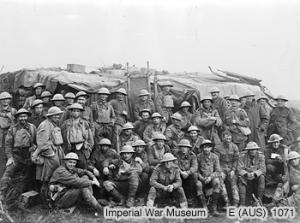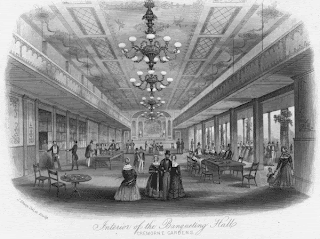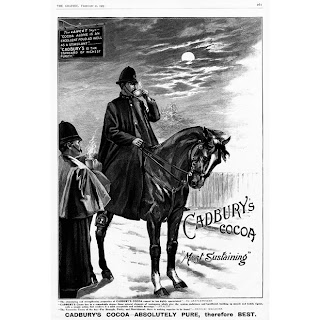On the 98th Anniversary of the outbreak of war between Great Britain and Germany, I thought I would post this amazing account by Esme Wingfield-Stratford from his excellent book “Before the lamps went out.”
In all the accounts of the beginning of the war, this account is one of the best. It captures that free pre-war spirit, everything right in England as the inhabitants of a Kent village, play a cricket match on the eve of war.
There is something naive yet unnerving about this account and the chapter is entitled “The end of a world.”
I love the last few lines as Wingfield-Stratford tells his father of the mobilization orders and the notices put up in shop windows:
"Those fellows," I said, "don't realize what's coming to them.
And in a few days they'll be thinking it's the end of the world."
My Father did not answer for a moment. Then he said in a voice quite different from his ordinary one:
"For many of them it will mean the end of the world;"
A burst of applause; a one-handed catch on the boundary.
Another wicket.
My Father glanced at the score board:
"Time for you," he said, “to put on your pads."
For many all over Great Britain it would time “to put on their pads.” To play the greatest game of their life.
“Appropriately for Kent, we are on the edge of a cricket ground, which was the open pasturage in the eighteen-eighties to which it will revert, alas, in the nineteen-forties. But where we are in 1914, though small, it has been pronounced, by competent judges, to offer as good a pitch as you might get on a county ground. That is the fruit of many seasons' co-operative labour, pushing the heavy farm roller every evening after practice, under the expert advice of Mr. Hickmott, formerly ground man at Mote Park, and, even now, though well past the allotted span, capable of opening the innings with his twin brother, and driving the first three balls, one after the other, smack against the garden. railings, in the forthright Victorian style of 'W. G'. or 'Hammond.'
For sheer, undiluted enjoyment, on which, looking back, one does not grudge a moment of time spent, give me those Saturday afternoons with the Fartherwell Hall cricket team; that band of brothers recruited, in those pre-war days, mainly from about the house and farm, and the neighbouring village of Offham though with the occasional reinforcement of outsiders of county and even of test match standing; for our distinguished neighbour, Ted Humphries of East Malling, was not too grand, on days when Kent had finished with its opponents before lunch, to take a hand in our more light-hearted contests. I can only say, for my own part, that however worried or anxious I might ever have been feeling about anything, I could always reckon with certainty on throwing it off my mind from the first ball bowled until fall of the last wicket. At least, up to this particular afternoon. For though this match was always the most keenly contested of the season, i found myself, for the first time, utterly unable to concentrate my thoughts on the business in hand. For there was one supreme question that kept turning itself over and over in my mind, though I was well aware that the answer would only too soon be forthcoming.
For this Saturday was the first day of the month of August, in the year 1914. The scene was so peaceful and carefree what with the limes and wych elms that cramped the dimensions of our little ground and' made such easy fours when you were lucky enough to hit a branch, the benches and seats, filled by spectators wholly absorbed in the game, and my oId home smiling as serenely in the background as it had for these past thirty years-that it was almost impossible to imagine the boom of guns reverberating far away over the Blue Danube that had lately been linked with such different associations; to think of grey clad armies mobilizing all over the vast spaces of Southern - but as yet, by the Grace of God, no more than Southern Russia; of the 'Grand Fleet that His Majesty had lately. been reviewing, stripped for action, and heading under sealed orders for its unknown battle station- not to speak of a certain other fleet of whose whereabouts and proceedings there was as yet no hint, but which might at any' moment now .... what was it one half expected to hear out there, beyond Chatham and the Nore? Whatever it was, 'was no excuse for letting one's •attention wander at second slip!
It had all come so suddenly! Only just over a week ago it had been that I had gone down to King's - my Fellowship having expired a year before and the vacant place been filled by Rupert Brooke - to play against the Trinity dons, and I had read in the Common Room the incredible ultimatum that Austria had presented to what was then called Servia. The whole thing had seemed too fantastic to be taken seriously! One could understand the feelings of the poor, bereaved old Emperor; but this was going to 'be very awkward, another of those crises of which one had hoped to have seen the last. No doubt it would be settled somehow like all the others. But would it? During the next few days things had seemed to be taking a more and more ominous turn. Russia had begun to loom up in arms on the Austrian flank, and that meant what, unless Europe had gone mad, was so plainly absurd that. . .
.
But it had only been on the evening of Thursday - the day before yesterday - that the report of the sudden, unprecedented decision, in Parliament, to sink all differences on the home and even the Irish front, had made it plain that this was no ordinary crisis, but that in all human probability, the European avalanche had acquired too great a momentum to be stopped short of - dared one even say the Channel?
And yet for the last two days life had gone on just as usual, to the accompaniment of wild rumours, started nobody knew how: the British and French Mediterranean fleets had met somewhere off Malta, dipped flags, and joined company, sounds of distant firing having been subsequently reported; one of those who did know such things, knew for a fact that three German Zeppelins had been discovered in the sky over Essex, and that our aviators had been under orders not to fire on them; somebody who had just come from Folkestone professed to have seen the whole French fleet steaming eastward through the Straits-for what purpose one could only guess.
One must keep one's head and try to see things in proportion. There were two anchors of hope; two things that had not happened - and so long as these did not, nothing could! Mobilizing the fleet was an obvious precaution - a firebrand like Churchill, with all his faults, could be trusted for that; but the real test was still to come. No Government, not even this Government, that believed war to be imminent, would neglect to mobilize the army. And there were no signs as yet of that happening. And what was even more important, Germany, without whom no quarrel in the Balkans could become European, had given no sign except - which did give one a certain qualm - to turn down Grey's suggestion of a Four Power Conference.
But Germany had so far given no positive sign. Even the Kaiser, for once in his life, was quiet. And the Kaiser might prefer to handle things in his own way. He was said to be in touch with the Tsar. And no doubt he felt that he could soothe down poor old Francis Joseph more easily without the aid of potential enemies.
No-so long as the army remained unmobilized, and Germany did not move, nothing could happen. The crisis was just a crisis; and the fact that nothing had happened might mean that the worst was already over: every hour now that the collapse was postponed increased the hope of recovery.
But another sort of crisis was beginning to develop. I hope it was not due to my slack handling of the team; but when it got to the stage of my putting myself on to bowl, it meant that the time had come for desperate remedies. Perhaps I may have been a little influenced by the fact that my Father, who had been standing umpire, and had a theory, that he seldom neglected to expound with some candour in case of an appeal, that I was physically incapable of getting anybody leg before, had been forced to go off on one of the many local activities that had absorbed his energies since the expiry, three years ago, of his last command.
The batsman was just taking his guard for left-hand round, and I was marking with my heel the start of my run, when:
"Please, sir, Major G-- says he wants to see you at once."
Major G--! Who on earth was Major G--? The name conveyed nothing to me. Nor was I much enlightened by the sight of a stocky gentleman, with a preoccupied expression, who was standing by the lawn gate. I tossed the ball to another bowler, and hurried in the direction indicated.
I started to say something by way of greeting, but he cut me short:
"Know where I can get into touch with the General?"
I said I didn't know where he had gone, but that I knew he would not stay away from this game longer than he could help.
"Well, can you give him this message from me the moment he arrives? We're mobilizing."
God! One anchor gone already!
"And we want to know if he'll undertake the remounts for Kent."
It may have been owing to the fact that my intended change of bowling had not materialized, that the innings came to an end before my Father had returned. I took care to put myself low enough in the batting order to enable me, with a clear conscience, to dash off on my bicycle into the neighbouring town of Malling.
When I returned I found my Father standing where the Major had been.
"Hullo," he said, "what's the latest?"
"The papers haven't arrived," I said, "but there's a notice just posted up in the window of Oliver's shop, that the Kaiser has declared Germany to be in a state of siege - whatever precisely that may mean."
"It means that the Germans have started to mobilize." "But that needn't imply .... "
"Mobilization means war. Not that, Lloyd George and Winston mayn't try to stop us yet from coming in with the French;"
I then delivered Major G---'s message.
"Not a bit of it!" he said, "once get Stellenbosched into that, and I shan't see a shot fired. I mean to stand out for a command in the field."
A well-dinted trench helmet, an honoured family relic, testifies to the measure of his success in that endeavour.
For some time we both remained silent, he, I think, genuinely absorbed in the game, I trying to convince myself that all this was really happening. Everybody present, except myself, seemed blissfully unconscious of anything taking place outside their own little world. Perhaps they were not quite so ignorant as I thought. Thirty years later, almost to the day, I was standing on - or perhaps I should say proceeding quite briskly across - this same field, with the whole sky bursting into bouquets of smoke to the accompaniment of the most infernal pandemonium from every point of the compass, with the ripping and coughing solo of two successive buzz-bombs in a bee-line overhead. To me it was an interesting speculation which side was going to bag me first, with the betting heavily on the defence. But just by, on a newly ploughed turnip patch, were a couple of Kentish farm hands, placidly plodding away with their hoes, without even condescending to look up.
However in. those days, I had never thought of anything worse than Zeppelins, and I was perhaps more prone to judge by appearances than I have become since.
"Those fellows," I said, "don't realize what's coming to them.
And in a few days they'll be thinking it's the end of the world."
My Father did not answer for a moment. Then he said in a voice quite different from his ordinary one:
"For many of them it will mean the end of the world;"
A burst of applause; a one-handed catch on the boundary.
Another wicket.
My Father glanced at the score board:
"Time for you," he said, “to put on your pads."











